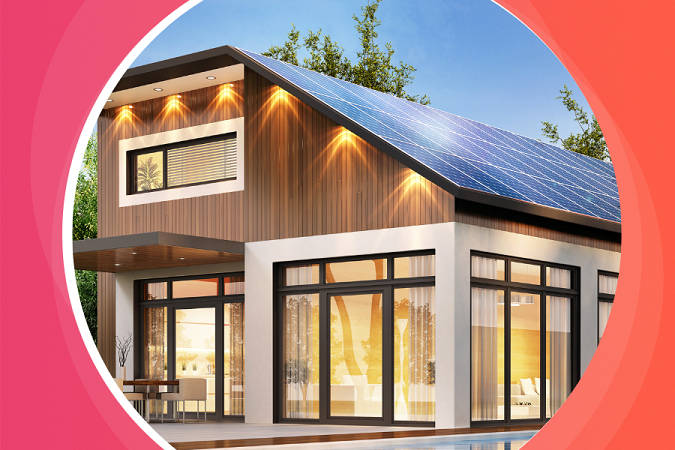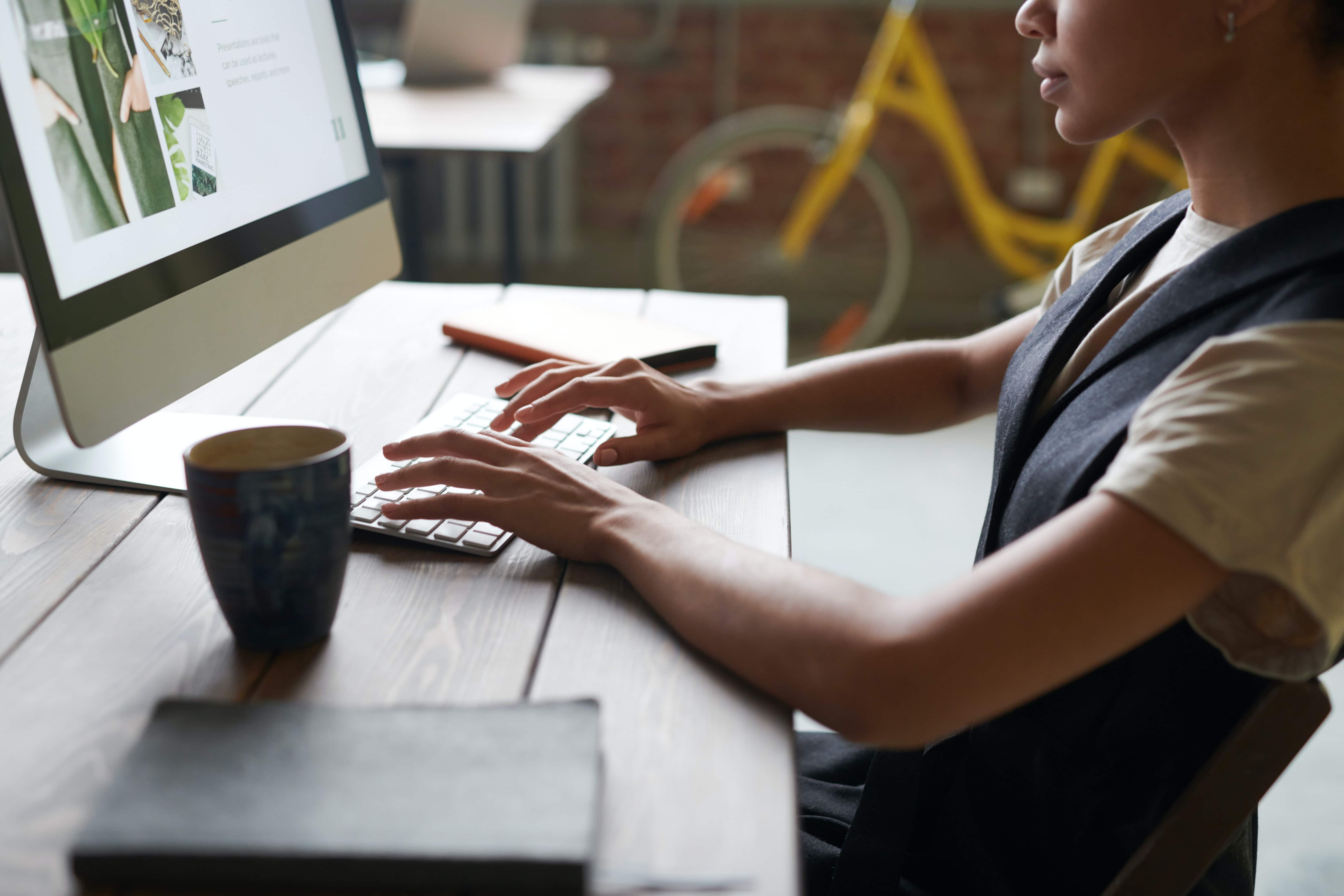The All Electric Home
[Republished with permission from Sunergy Solar & Batteries] While natural gas may have once been the cheapest energy source for hot water and...
7 min read
![]() Solar Trust Centre Team
:
Jan 21, 2022 9:00:00 AM
Solar Trust Centre Team
:
Jan 21, 2022 9:00:00 AM

Dion Epstein is the founder and managing director of G-Store, which provides holistic solutions for an all electric solar powered home, using rooftop solar systems, solar batteries, and high-efficiency heating, cooling and hot water systems. G-Store operates out of its stores in Malvern East in Melbourne, and Warragul in south-eastern Victoria.
The Solar Trust Centre was very pleased to have a chance to chat with Dion regarding the work of G-Store, and his thoughts more widely on solar power, climate change, the pandemic, and more! The following is a transcript of our conversation.
1. What does G-Store do and what makes it unique?
2. History and family values of G-Store
3. Challenges faced in the pandemic era
4. What can the solar industry do to improve?
5. What needs to happen for Australia to be a climate change action leader?
6. How does G-Store support jobs and communities in rural, remote, and provincial Australia?
7. What does the transition to an all-electric Australia look like?
8. How would you sum up the year for solar professionals?
9. What advice would you give to other solar professionals out there?
G-Store is committed to reducing the impacts of climate change by making Victorian homes more energy efficient and accelerating the race to net zero emissions.
We are unique in that we take a holistic energy approach with our core capabilities in the areas of solar and battery storage, heating and cooling and hot water.
We are committed to sustainable long-term solutions and relationships with our customers and suppliers and as such we only choose the best technology, backed by industry-leading warranties and brands.
Yes, we are a family business and have been operating with those family values for 15 years where the staff are part of the family and not a number, where hard work is both expected and appreciated. It is something I have been raised with. My grandfather started Spring Valley Fruit Juices which my father later took over, and my wife’s grandparents started Gottlieb's Builders Supplies which my father-in-law took over and which my wife, Yona and I now manage. Many of our staff have been with us for a long time and care deeply for the business.
It has been hard for everyone to keep connected and mentally healthy with all the lockdowns in Victoria, but we have adapted with technology and are trying to make sure we have regular catch-ups, and that we generally look out for each other’s wellbeing. A lot of this stuff can’t be orchestrated and it is just that sense of looking out for each other. We worked hard to make sure everyone stayed in the business, and I am very pleased that no staff or contractor was let go during the pandemic.
Furthermore, if I could comment more broadly on our mission - which is to address climate change and have a better and more sustainable world - I would say that caring about others is at its core, and this Covid-19 period has been a timely reminder of the importance of the positive impact we can have in spite of geographical distance.
In addition to the difficulties surrounding remaining connected as mentioned previously, the key challenges for us have surrounded working while complying with Covid-19 safety requirements. For instance, the limits on the number of sites we can work on, as well as dealing with a full lockdown of the industry at times. We also operate between Regional Victoria and Melbourne, and travel restrictions meant some of our install crews and staff couldn’t cross regional boundaries to get to install sites.
Another critical challenge has been navigating the global supply chain upheaval with stock shortages and delays on goods. At one point in the last lockdown, we had taken a huge amount of stock to ensure we could meet demand only to then find ourselves unable to install! It meant warehouses were jam-packed with solar panels, and money tied up in stock.
Yes, we did see sustained demand particularly in the first wave of lockdowns in 2020 even in Victoria which was down on national activity. With work-from-home, higher energy consumption, disposable income not being used on holidays and fuel, the Victorian government’s strong incentivisation scheme for solar, batteries and energy efficiency measures, as well as a strengthening of the Small-scale Technology Certificate and Victorian Energy Efficiency Certificates trading markets, there was a perfect storm for the solar industry.
New and improved technologies will continue to develop within the solar industry and decentralised power will become more the norm along with a big uptake in electric vehicles. Smarter homes will use technology to make better decisions about when to use renewable energy and when to export it to our increasingly connected and decentralised grid. The industry needs to be at the forefront of the development and implementation of these technologies and apply that knowledge and skills globally, including to developing countries that may not have as much capability as the Australian solar industry which has the highest uptake of rooftop solar per capita in the world. We also have auxiliary capabilities in finance, banking, engineering, policy and so on, that we can leverage to help position ourselves as a global authority in clean tech.
We now need to be bold and demand more from our leaders in the Australian government and industry as well as from the individual decision-makers – the households and voting public. We are now at a turning point in our history where the impacts of climate change must be slowed and ideally reversed. Disappointingly, the Australian government and even the Opposition is not being bold enough in their approach to addressing climate change. Too often I hear it asked at dinner tables, ‘What impact are we really likely to have when we only emit approximately 1% of global greenhouse emissions?’
Well, for all the reasons I detailed previously, we have abundant solar energy, wind, available space on the land, and a superior education system, not to mention the infrastructure and knowledge to develop and export clean energy - and to create the jobs, jobs, and jobs of the future! We have technology available now that can realistically get Australian households to net-zero well in advance of 2050.
In all reality, it looks like we have the mums and dads of Australia leading the way while our elected leaders play politics. More is needed to accelerate the pace of change, including regulation and supporting innovation. I am a big believer in a positive attitude and mindset and hope the Australian public will support candidates who have a clear and bold vision for addressing this unprecedented challenge, and in what will be a critical decade in turning the curve. This is because every year of not addressing the problem will make it even harder to achieve net-zero by 2050.
G-Store has a deep appreciation of Regional Australia with a regional office currently in operation, and more planned going forward. We want to be a part of creating those jobs of the future, and I believe that any policy towards creating jobs has to take into account the social impacts of the transition to a new economy and the impact on the regions. The growth of remote working will help create more jobs everywhere, instead of just those based in specific locales such as a capital city, so that is very exciting. This provided the Australian government acts decisively and industry has clear guidelines and is seen as a partner in progress towards net zero.
We speak to a lot of people daily in Regional Victoria. They are really keen to support efforts to address climate change so it is a shame that certain political leaders and their parties in Australia who claim to represent the interests of Australians living outside the cities in fact seem to be hijacking the debate on climate change in the regions. It would be much more productive if these leaders and their parties were focused on the solutions that would enable Australia to make the inevitable transition to a world-leading clean tech economy, powered by our regions.
Much of this has been spoken of earlier. The technology is here now – solar panels, battery storage, energy-efficient zoned heating and cooling and highly efficient heat pump technology for domestic hot water and pool heating. Also, better-designed building fabric with higher energy standards. Australians love their homes and our homes are our castle. We can make choices that not only make for a more comfortable home but choices that are more sustainable and save money over a longer period of time.
Covid-19 has given us the chance to stop and think. What do we value, do we demand that our values on ESG – environment, social and governance, are reflected in the products we purchase and the companies we support? I think there is a rising tide of awareness.
On a personal level, I am also concerned we are becoming more and more materialistic and some of the larger global behemoth companies use powerful databases and behavioural impulses to push us to buy more and more cheap, low-quality products. I want to see a future for Australia where we are both sustainable and smart. This is not just applicable to policy in the green space, but to our community as a whole.
As a father of five children, I am very concerned about the influence of technology from a young age by those more concerned with profit than progress. I find it quite ironic that some of the major tech companies out there like to promote themselves as sustainable, yet they often drive never-ending consumerism to the highest bidder and that means a whole ton of needless waste is the end result. I think we can do better!
No doubt it has been perhaps the most challenging year ever for our industry but change is afoot. We’ve ever-growing vaccination rates across Australia, a net-zero target, borders reopening, the Australian government stimulus of the economy, and more. I think each of us needs to take stock of what is important personally and as global citizens when reflecting on 2021.
Be a loud strong voice for change and continue to do what you do well, continue to innovate and collaborate. Vote with your voice and your money to support companies that are mutually aligned to deliver good quality products and long-term solutions that are sustainable and ethical. It could be the companies whose products you choose to install or even the super fund you choose to invest in, or just telling your mates why working in solar is important enough to you that it’s what you commit the best part of your waking day to do.
STC thanks Dion for his time.

[Republished with permission from Sunergy Solar & Batteries] While natural gas may have once been the cheapest energy source for hot water and...

Australia’s power utilities and grid operators are struggling to keep up with home solar panel popularity. They are rushing to come up with ways to...